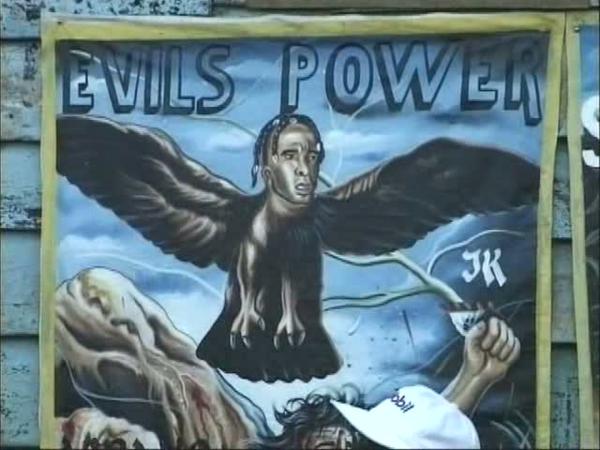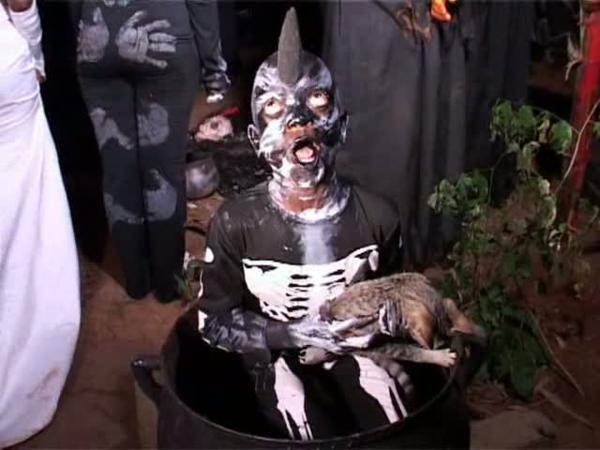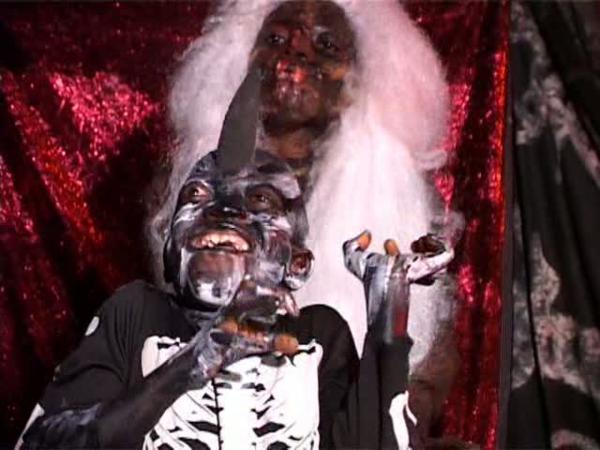
Abro Ne Bayie

2007
Directed by C’emeka Uba (Don)
Written by Samuel Nyamekye, Fred Asanti Kotoko, and C’emeka Uba (Don)

Africa is a hotbed for cinema, but little is paid attention to their massive film output outside of their native continent. But with a growing visibility at film festivals and overseas markets, the time is coming where African cinema becomes a major player on the world market. Nigeria producing the second most amount of films a year, behind only India. This movie making bug has spill over to nearby countries, and now Ghana has started to get a reputation as a cinematic powerhouse as well (even though they technically produced films first!) Ghana is aided by production companies that have offices based in Europe, run by Ghanaian ex-pats who return to Ghana with big money and movie star dreams. Abro Ne Bayie itself is an example of a local film company (Miracle Films Sudios) with a large connection to a distribution company in Europe (Q-Music out of Amsterdam). But before we look into Abro Ne Bayie, we need to look into where Abro Ne Bayie and the Ghanaian film industry comes from. Prepare for the infodump!
Ghana’s film industry started during colonization, with a colonial film unit of the government. It was later replaced by the Ghana Film Industry Corporation (GFIC) after independence, which was still state run by the Nkrumah regime (and the parade of military dictators afterwards.) The GFIC got some actual competition in the 1980s, as films made on video began to spring up. The military rulers were instantly concerned, and attempted to control the entire burgeoning industry with a Ministry of Information and a censorship board. Even after the transition to democracy in 1992, the Ministry of Information continued to come out with film guidelines through the 1990s. The Ministry is often concerned with Ghanaian film not being up to the technical or moral standards that they decree, but their influence is nil in recent years.

The video boom of the 1980s and 90s was largely associated with the Pentecostal Christian movement, which experienced a boom in membership at the same time. The membership was partially a response to the government at the time, as people rejected their support and turned to other support mechanisms. Once against Christianity in favor of local religions, the military rulers (at the time, the Rawlings regime) began embracing the church do its increased influence in an effort to use the power for themselves. The Pentecostal movement in Africa incorporates local religions, but revamps them so creatures of legend are all branded as demons or working for the Devil.
Another connection to the movie industry is that a number of theaters hold worship services during Sunday, as an effort to compensate for lack of available films. The Pentecostal movement also has lots of money, due to their emphasis of tithing and church donation, and it was a natural evolution to throw those piles of cash into media to convert more people for more piles of cash. Aside from television and radio time, movies became a big industry of church spending. The church-going audience is a big one in Ghana, as Ghana is mostly Christian (70% – most of which are Pentecostals) with a large Muslim population (15%). Movie producers had a formula for a successful film, which was marketed directly to female churchgoing audiences. Notorious for many reasons director Socrate Safo went outside the comfort zones with his film Chronicles of Africa, which gave a not-to-rosy assessment of Christian missionaries. Chronicles did well at gaining foreign critical praise and won awards at FESPACO (the Pan-African Film Festival of Ouagadougou), but failed to find an audience at home and lost money.

By the time Ghana became a democracy in 1992, the increase in media freedom caused the Ghanaian film industry to explode, increasing to over 50 films a year. Though attempts were made to create truly Ghanaian cinema, the influence of American, Hong Kong, Indian, Malaysian, and Nigeria films are felt to the point of Ghanaian cinema’s voice being less distinct. But still, Ghallywood (sometimes spelled Ghollywood) soldiers on, and in the past few years, the films have become more risque and more prolific. The industry is also modernizing in the face of overseas immigrants returning with handfuls of cash. The documentary Ghanaian Video Tales show films being filmed and distributed by vhs tapes, most of the distribution tapes patched together from discarded videos and tape, and sold from the back of moving musical party vans advertising each new film. A modern film like Abro Ne Bayie (which came out just two years after the documentary was released) is shot on digital cameras and sold on DVDs/vcds overseas. (I honestly don’t know how it was released in Ghana, but probably a mix of VHS and vcd/dvd. One can hope they had their own party van as well!) Our review of Ghanaian Video Tales will cover the early years of Ghanaian horror, and these Abro Ne Bayie reviews will look at a modern example.
Abro Ne Bayie is a mix of English and Twi, the local dominant dialect. The Twi is subtitled whenever the subtitle guy feels like it, which is less often then you would think. Because no one here is likely to grab copies of this off of Netflix, we’ll do a long and complicated plot explanation complete with the patented lame jokes as we go.

And, because we’re extra awesome, this is one of TarsTarkas.NET’s entries in the MOSS (Mysterious Order of the Skeleton Suit) inaugural Conspiracy (theme month) – Skeletons in the Closet. Check out other MOSS member’s entries on the splash page! Every entry features either dudes in skeleton suits or skeletons/skulls featuring in the plots of films and comics. If you don’t click the link, I’ll break every bone in your body in alphabetical order.

There is lots of setup in these films that go nowhere, and more loose ends than a loose ends factory. It’s almost as if the films’ scripts where more general ideas, written as they went to outline what should be happening. Just when you think there might be epic conclusions, resolutions to plot arcs, or just a sense of things going somewhere, whole chunks of the film are dropped and forgotten. If we’re lucky, we get an offhanded statement that clears things up, but oftentimes opening just as many questions as it answers. But in reality, we might as well put some of the characters on milk cartons, because they’ll vanish without a trace.
From watching lots of films from lots of countries, both epic in scope and ridiculously on the cheap, I am well familiar with different narrative forms in different cultures. But I’m also familiar with films from countries that doesn’t even line up to what is considered good movie structure in those countries. You don’t have to be an expert in world cinema to recognize cheap film production with no script and no clue. The Abro Ne Bayie films are pumped out quick and cheap to get sales as soon as possible, in order to churn out more quick and cheap films. It’s a vicious cycle of cinema torture, and it happens everywhere people don’t demand better.
In fact, from some interviews and articles I’ve read about other Ghanaian film productions, I’m convinced that the same happened here, in that much of the dialogue (especially the arguing between Kofi Adu and Mercy Asiedu) was ad-libbed, and the script was as bare-boned as you’d expect.

Is Abro Ne Bayie a comedy? Comedy Horror? There is certainly attempts to be comedic. The bickering between the mom and dad is definitely supposed to be funny, too bad most of it is in Twi and unsubtitled. So the jury is still out there. It looks like the brother I’ve dubbed Drools McGee is supposed to be comedic. Drools seems to enjoy causing trouble and defying his parents, who want to keep him hidden. But Vincent refuses to treat his brother like crap and isn’t embarrassed about him. When Vincent is bringing heart to the situation, those scenes come off more tragic than comedic. It’s an odd dichotomy that is among the best parts of the film, even if it looks like it was completely unintentional.
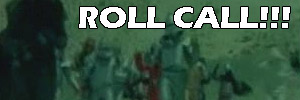
 |
Dufie (Mercy Asiedu) – Evil secret witch who conspires to destroy her son….because. We’re never given a reason, but who cares about motivation when a character is evil? That’s the kind of thinking that turned Darth Vader into a whiny crybaby. Arguments between Dufie and her husband Owusu fill up time and pad the film out, while her witch antics also pad the time out and drive the plot. Mercy Asiedu has costarred with Kofi Adu so often rumors of them being married continue to spring up, despite it being not true. |
 |
Mr. Owusu (Kofi Adu) – Owusu is the father of Vincent and Dufie’s husband. He spends most of the film not knowing what is going on and arguing with his wife. In fact, his character is pretty useless, and only does something slightly useful in the second film. Actor/comedian Kofi Adu (also known as Agya Koo) has appeared in over 100 films (some articles list that number as high as 400) and is one of the most popular entertainers in Ghana. He originally planned to be a stand up comedian, does comedic roles, but has also branched into dramatic roles and is a prolific singer as well. Married with two daughters, the Ghanaian film industry is so small that he regularly gets calls on his cell phone from fans. Kofi Adu was honored by Ghana’s former president John Agyekum Kufuor in 2008. |
 |
Vincent (Bernard Aduse-Poku) – Vincent is the healthy son of Dufie that she promised to her witch coven. Vincent believes in the power of Jesus, so Dufie’s witchcraft has no effect on him. She’s resorted to disrupting his lovelife and conspiring to set him up to marry a woman employed by the witches to destroy him. Vincent spends most of the film unaware of what is really going on around him. |
 |
Rosemary (Shasha Opoku) – Vincent’s fiancee, who is immediately disliked by Dufie because she’s not evil. Dufie and the rest of the witches must destroy her. |
 |
Queen Eva (Babara Amayah A. Amantey) – The Queen Witch, Eva wears a blonde wig and dirty, filthy clothes like all witches. Her group of followers are each dressed spookily, but only a few are named, including the black painted faced Kpongbo, and the star of our witch coven…. |
 |
Sunsum (Yaw Adu) – Sunsum is the star of the movie, a crazy kid in a skeleton suit with a horn who dances and freaks out and does general witchery. He can transform into a full grown man and seduce women! How many kids do you know who can do that? Maybe 15. Sunsum is awesome, he’s so awesome he’s jawesome! |
 |
Natasha (Benny A. Sowah) – The new woman in Vincent’s life after Rosemary leaves him. She is working for the witches, and vows revenge on Pastor Joseph because he dares to stand in her way. |
 |
Pastor Joseph (Gottfred Opoku-Mensah) – Local church leader who unwittingly gets involved in the witchcraft conspiracies because he has marriage advice. |
 |
Drools McGee (???) – What is this character’s name? He’s not even listed in the credits or subtitles despite being the focus of several scenes. So we just named him Drools McGee. I guess his full name would be Drools McGee Owusu, as he’s also the son of Dufie and Mr. Owusu, and Vincent’s brother. Dufie and her husband are sort of ashamed of their son, but Vincent is not ashamed and likes spending time with his brother. I think he’s supposed to be comic relief, but he’ll disappear with no explanation in Part 2. |
|
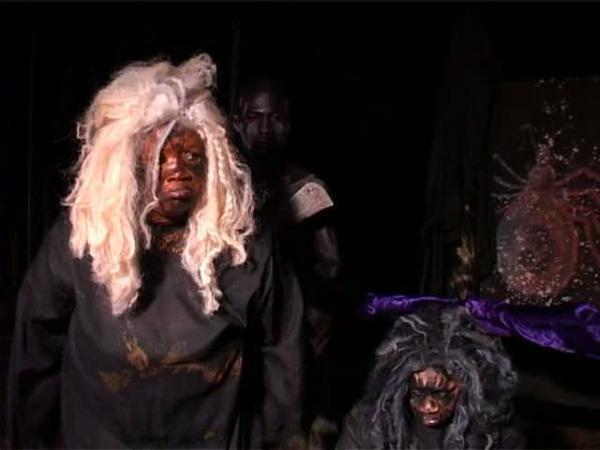

![]()















